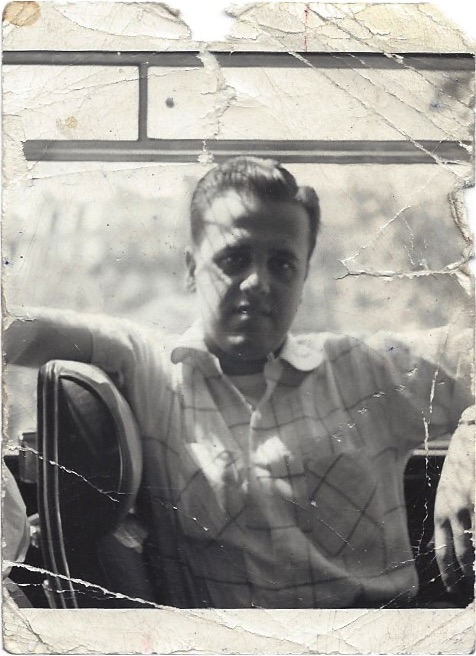Visiting my parents in Watertown this week, after my father’s return from a recent hospitalization, reminded of me of this poem I wrote many years ago. Thought it was a good moment to pull it from the archive.
Poem for My Father’s Voice
“Show me,” I’d say, “show me
exactly where in the Bible
it says that dancing is a sin.”
He wouldn’t argue, and even if
I made it to school dances,
my body was lead; I couldn’t move
hearing his long silence.
I never gave up, though; I’d worry
him like a dog worries a squirrel
up a tree, going crazy for wanting
a fight. When I was in college,
I’d take Vermont Transit home
and cross Harvard Yard to meet him
at the store; he peeled off the red
apron and white coat, ran upstairs
to punch out on the clock, and
on the ride home, we’d talk.
His favorite topic was the weather,
until it became a joke between us,
like the popsicle-stick cathedrals
he wanted to build when he retired
until I embarrassed him out of it.
I imagined him gluing and placing sticks
for hours at the table, looking
like an overgrown camper.
Years away from home sanded the edges
off anger; on our rides to and from
the airport or the train, he talked,
and now I didn’t know what to say.
He told me his whole life had been
a waste, except for my mother.
Another time he said, “When I get
to heaven, God will make me perfect,
and I won’t be stupid any more.”
His father had called him
“mentally bankrupt” when he was
a kid working at the family market,
driving deliveries at ten, the cops
kept off with bribes of meat and
butter. “It was during the war,”
he told me, “meat was scarce.”
The last time I came to town, he
explained the doctor wanted to take
a vein from his leg. When he stands
at the block, my father works the knife
in his right hand, leans into
the left leg, and now blood
seeps through the vein making
brown patches under the skin
near the ankle. He pulled up
his pant-leg and rolled down the sock.
He said, “It makes me think of my father.
They took his foot, his calf, then
the leg, and I know it’s not the same,
but I can’t help thinking of it.”
I imagine the dreams at night,
his father’s lost leg hovering
near the ceiling, and his mother’s
heart, so small and tight, moved
into his body. Her pills are now his,
nitro-glycerin under the pillow
of the tongue. I remember times
when I yelled at him, “I hate you,
you’re so stupid.” I liked the sound
of my voice tearing into him, and
wanted to bury him with words. He’d say,
“Shut up. Do you hear me? Shut up.”
Originally published in RIVER STYX Literary Magazine, Number 32, Fall 1990
Nancy Kricorian
October 19, 2017
